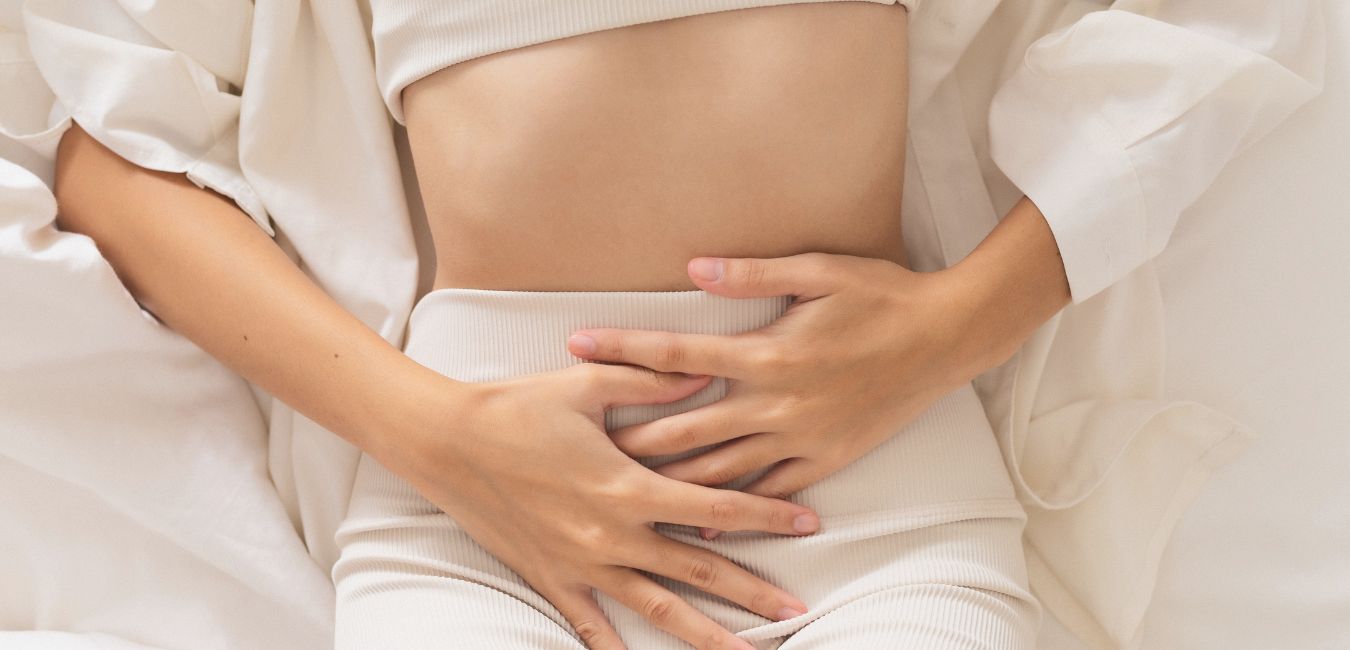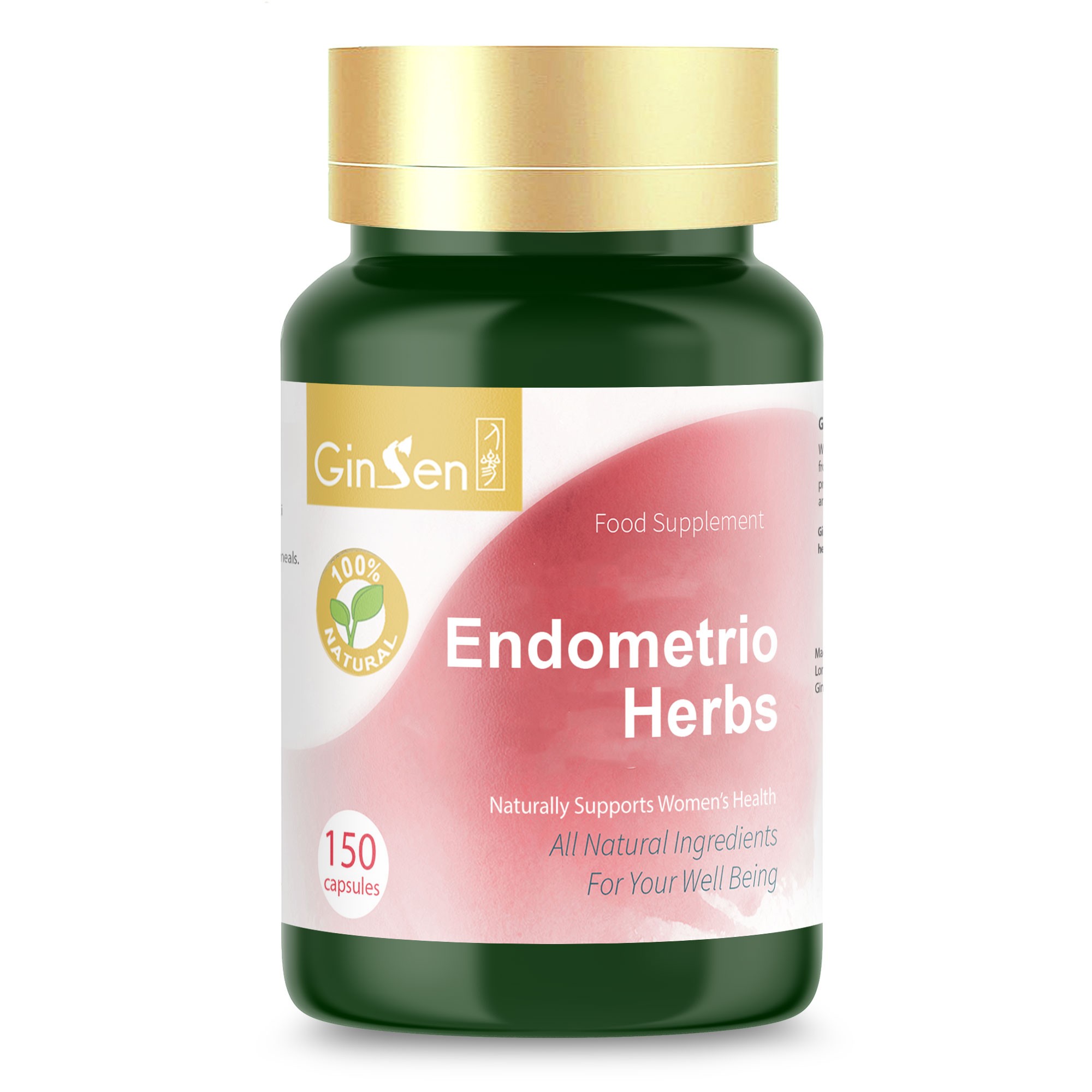
Beyond the Gut Feeling: Unveiling the Potential Link Between Endometriosis and Gut Health
Think of endometriosis: it’s a gynaecological condition where the lining of the uterus (the endometrium) is located elsewhere in the body, including the ovaries and fallopian tubes. The condition affects approximately 10% (190 million) of reproductive-age women and girls globally, according to the WHO.
Symptoms are usually pelvic-related, from painful periods to pain during sex. However, there’s growing evidence for a connection between gut health and endometriosis – and it’s pointing to new ways to understand and manage this painful condition. Let’s learn more about the link between Endometriosis and gut health as well as Endometriosis and IBS and how Chinese Medicine can offer a natural solution.
What is the Link Between Endometriosis and Gut Health?
Your gut houses trillions of bacteria, viruses, and fungi, crucial for your health. This “gut microbiome” aids in food digestion and vitamin production, protects the intestinal lining, and guards against harmful pathogens. It plays a key role in your immune system and balancing inflammation.
New research also suggests a potential link between endometriosis and gut health. Potential causes include altering estrogen production and metabolism, increasing inflammation, and producing disruptive metabolites.
High Estrogen Levels
Endometriosis is usually linked to high estrogen levels, which can cause tissue similar to the uterus lining to grow outside it. The liver helps manage estrogen levels, but the gut bacteria can break down substances that allow more estrogen to be absorbed back into the body, worsening endometriosis.
Inflammation
“The inflammatory response is the central process in the development of endometriosis, leading to pain, tissue remodelling, fibrosis, adhesion formation and infertility,” writes one paper’s authors. The condition develops and worsens if the immune system fails to remove ectopic endometrial tissue. Gut microbiota may interact with immune markers, disrupting this natural removal and promoting an inflammatory state.
Once inflammation occurs, it can spread to the whole body, affecting the systemic immune system. Indeed, elevated inflammation can harm egg quality, uterine receptivity, and further exacerbate gut health.
Related: Navigating Endometriosis and Fertility With Chinese Medicine
What Impact Can Endometriosis Have On Your Gut Health?
What about the reverse? Does endometriosis also cause disruptions in your normal gut health?
Yes. Here’s how:
- Endometrial tissue growth outside the uterus triggers inflammation, potentially resulting in digestive problems, bloating, and abdominal pain.
- A compromised immune response associated with endometriosis may heighten the risk of gastrointestinal infections.
- Hormonal fluctuations, particularly in estrogen and progesterone, linked to endometriosis, can lead to issues within the digestive system.

Is There a Link Between Endometriosis and IBS?
Yes. Irritable bowel syndrome (IBS) and endometriosis experience significant symptom overlap – especially bloating or “endo belly.” Indeed, endometriosis causes numerous gastrointestinal symptoms, including nausea, constipation, diarrhoea, and more.
Women with endometriosis are three times more likely to have IBS than women without endometriosis, according to a 2022 systematic review and meta-analysis. Such results were confirmed in another 2022 paper, which found a higher prevalence of IBS and eating disorders among people with endometriosis.
Why this occurs is not known. One theory suggests that retrograde menstruation (close to the gut) triggers irritation and the symptoms of IBS. This activates mast cells in the region – a common sign in both conditions. In fact, studies have shown that women with IBS experience higher rates of ectopic pregnancy and miscarriage may indicate that endometriosis is the causal link or that escape of uterine material is more common in such individuals.
Related: Endo Belly (Severe Bloating) Relief with Chinese Medicine

Chinese Medicine Has Long Acknowledged the Gut-Endometriosis Link
In Chinese Medicine, endometriosis is considered an imbalance in the body’s Qi, blood and organ systems. Practitioners will look for patterns of disharmony that affect either the reproductive system, digestive system, or both.
In fact, long before the revelations of Western medicine, Eastern practices established the link between gut health and endometriosis. Here are several connected factors:
- Blood Stagnation: In Chinese medicine, endometriosis is linked to blood stagnation in the pelvis, causing pain and inflammation. Factors like cold, dampness, or Qi deficiency may lead to symptoms such as dark menstrual blood, clots, and intense pain, potentially affecting digestion and causing symptoms like abdominal pain or diarrhoea.
- Spleen Qi Deficiency: The spleen in Chinese medicine is vital for digestion and converting food into Qi and blood. Insufficient Spleen Qi due to poor diet, stress, or dampness can result in bloating, fatigue, and loose stools, impacting digestion and potentially exacerbating endometriosis.
- Kidney Yin Deficiency: The kidney governs reproductive health and hormone balance in Chinese medicine. A lack of Kidney Yin can cause hot flashes, night sweats, and dryness, intensifying endometriosis symptoms and leading to digestive discomfort.
- Dampness and Heat: These factors cause inflammation, pain, and stagnation. Arising from dietary habits, stress, or environmental factors can trigger symptoms like bloating, vaginal discharge, bowel irregularities, worsening endometriosis and digestive issues.
Improve Your Gut Health If You Have Endometriosis Using Chinese Medicine
Acupuncture is the preferred method for treating endometriosis and underlying gut health problems. It involves inserting fine needles into specific points in the body to alter neural signalling, improve the flow of Qi, and remedy any conditions.
The practice is known to reduce inflammation. According to a 2021 literature review, acupuncture relieves inflammation through several mechanisms, signalling pathway, and cholinergic anti-inflammatory pathway. Together, they help downregulate a pro-inflammatory state – beneficial for both ectopic endometrium removal and gut health.
The treatment also increases fertility. One study found that acupuncture improves endometrial receptivity (the ability of an egg to implant) in infertile women.
Recommended Supplement:
Endometrio Herbs
Expertly formulated by women’s health experts to assist women who are experiencing fertility challenges due to endometriosis, giving the highest chance of conceiving naturally. Made with natural ingredients Endometrio Herbs can also reduce endometriosis symptoms including pain and menstrual irregularities.

Moxibustion: Meanwhile, moxibustion – involving burning dried moxa on or near the skin’s surface to stimulate acupuncture points – shows some efficacy in increasing the beneficial gut microbiota, offering a potential indirect treatment for endometriosis. In a study, the relative content and species of beneficial bacteria increased due to moxibustion on the stomach meridian group.
So, not only does Chinese medicine provide an explanation for the link between endometriosis and gut health, but it also presents a potential solution.
Moxa Stick
These pure moxa sticks are effective and safe to use at home. Moxibustion is a Traditional Chinese Medicine treatment used for warm up the meridians and dispelling coldness. Offering an abundance of health benefits.


Most Question Answered
Does endometriosis cause stomach problems ?
Yes, endometriosis can cause stomach problems. Common symptoms include:
- Bloating (“endo belly“) – Severe bloating, especially around the time of menstruation.
- Nausea
- Constipation or diarrhea
- Pain with bowel movements – If endometrial tissue grows near or on the intestines, it can cause pain when passing stool.
- Acid reflux or indigestion
For more information about how Chinese Medicine can help you with endometriosis and gut health, book your free consultation with our Chinese Medicine experts today
* These statements have not been evaluated by the Food and Drug Administration. This information is not intended to diagnose, treat, cure, or prevent any disease. We can’t guarantee the treatment result, as the symptoms of conditions are unpredictable and vary greatly from person to person. The treatment length and recovery time also varies for individual. Please visit our clinics website: GinSen where a specialists will discuss your care and provide a consultation, and the treatment will be designed to meet your individual needs.





